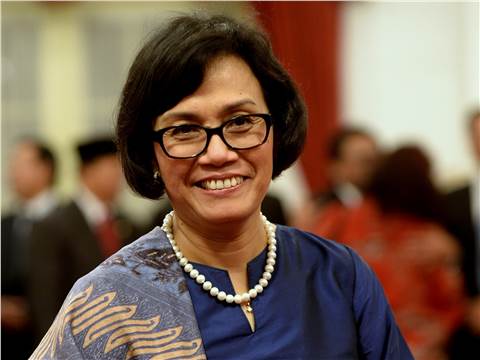
The controversial Finance Asia magazine has nominated Indonesia’s female Finance Minister as the best in the job in the ASEAN and the Asia region.
Jakarta, MINA – Indonesia will probably post a smaller fiscal deficit this year than initially expected, partly due to under-spending by the government, while economic growth is set to pick up pace, gulf.times.com reported Monday, citing Finance Minister Sri Mulyani Indrawati.
The shortfall may come in at about 2.7% of gross domestic product(GDP), Indrawati said in an interview in Jakarta on October 27. That compares with 2.9% estimated in July.
“Overall I think it is balanced, meaning that the revenue is going to be achieved,” she said.
“With the combination of unspent budgets and revenue, which is still picking up and very healthy, there may be some shortfall.”
Also Read: Saudi Arabia Wins Bid to Host World Expo 2030
Southeast Asia’s biggest economy should pick up pace next year, expanding 5.4%, as exports and consumption strengthens, she said. Growth may surprise if investment increases, she said.
Indrawati, 55, returned for her second stint as Indonesia’s finance minister in July last year after spending about six years as a managing director at the World Bank. She is trying to boost tax revenue to keep the budget deficit under the mandated ceiling of 3% of GDP.
The 2018 budget, approved by the parliament this week, targets a budget deficit of 2.2% of GDP next year. Indrawati said the government has a contingency plan in case of a revenue shortfall this year.
The economy has expanded at an average of 5% in the past five years, well short of the 7% target set by President Joko Widodo when he came into office three years ago.
Also Read: 148 Products from Indonesia Promoted at Sarawat Superstore Jeddah
Exports recently have done their part, rising 15.6% in September from a year earlier and delivering Indonesia its highest trade surplus in five years.
Indonesia’s economy faces headwinds from tax reform and rising interest rates in the US, with the currency coming under pressure in recent weeks. The rupiah has dropped 3.3% against the dollar since reaching a 10-month high in September.
Indrawati declined to state a government target for the rupiah, saying only that it wanted a “realistic level” devoid of speculation.
“Indonesia has a strong foundation and that’s why the level of perception about this country and the management of the economy will be very important for the level of the rupiah that we want to see,” she said.
Also Read: Packaging Industry Supports Halal Ecosystem
With the Federal Reserve embarking on tightening monetary policy through further interest-rate increases and an unwinding of its $4tn balance sheet, Indonesia’s central bank hit the pause button this month after eight rate cuts since the beginning of last year.
Indrawati said it will take time for the policy easing to filter through to the broader economy. There’s been some discussion about how to make the transmission of the central bank’s rate cuts to bank lenders more efficient, she said.
“But I think it will come, maybe with a lag of between 12 and 18 months, meaning the results can only be enjoyed early next year or middle of next year,” she said. (T/RS5/RS1)
Mi’raj Islamic News Agency (MINA)
Also Read: Indonesia-Japan Agree on Energy Transition Cooperation






![MUI Chairman for Foreign Relations and International Cooperation, Sudarnoto Abdul Hakim (center) at the One Million Women for Gaza Press Conference entitled "Women Boycott Pro-Israel Products" held at the Swiss-Belinn Cawang Hotel, East Jakarta, Thursday (3/7/2025). [Photo: Arina/MINA]](https://en.minanews.net/wp-content/uploads/2025/07/20250703_144042-scaled-1-300x225.jpg)





























 Mina Indonesia
Mina Indonesia Mina Arabic
Mina Arabic